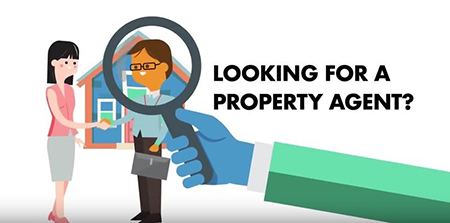3 Tips to be a Savvy Consumer
Looking to engage a property agent to help you to buy, sell, or rent a property?
Watch the Council for Estate Agencies (CEA)’s latest consumer educational video for three quick tips on how you can start your relationship with your agent on the right foot!
Here’s a recap of the three tips.
- Check if your agent is registered with CEA via the Public Register.
Picture this: You engage an agent to help you rent a room in a HDB flat. He facilitates the transaction and even offers to help you pass the rental deposit to the landlord (which is illegal by the way). A few days later, you contact the landlord only to find out that he did not receive your payment. You call your agent, but the number is no longer in use. You then check CEA’s Public Register and to your horror, you discover that your so-called “agent” is bogus!
Always check CEA’s Public Register to confirm if the property agent is registered before you engage them to help you with your property transaction. An unregistered agent could mishandle your transaction, delaying its completion or worse, giving you financial losses. - Negotiate your agent’s commission before he starts work.
Commission rates are not fixed. There is no minimum or maximum percentage, nor is there a “standard market rate”.
Compare the services offered by different agents, and negotiate the commission amount as well as components of the fees and expenses accordingly before the agent starts work. Also, remember to confirm if GST is included.
After your transaction has been completed, pay the commission to the property agency, and not to the agent. - Handle your own money for your property transaction.
It is best for you to handle the money related to your property transaction yourself (e.g. conveyancing fees for sale and purchase of properties, rental deposits, and monthly rental for lease of HDB properties).
Asking your agent to help pass payments to the payees could be convenient, but you could be landing him in hot soup as it is actually illegal for agents to handle certain monies.
Remember to pay the payee directly using verifiable payment modes such as crossed cheques and bank transfers. If you are paying cash, ask for a receipt from the recipient.
Visit CEA’s happy consumer webpage to find out more!








